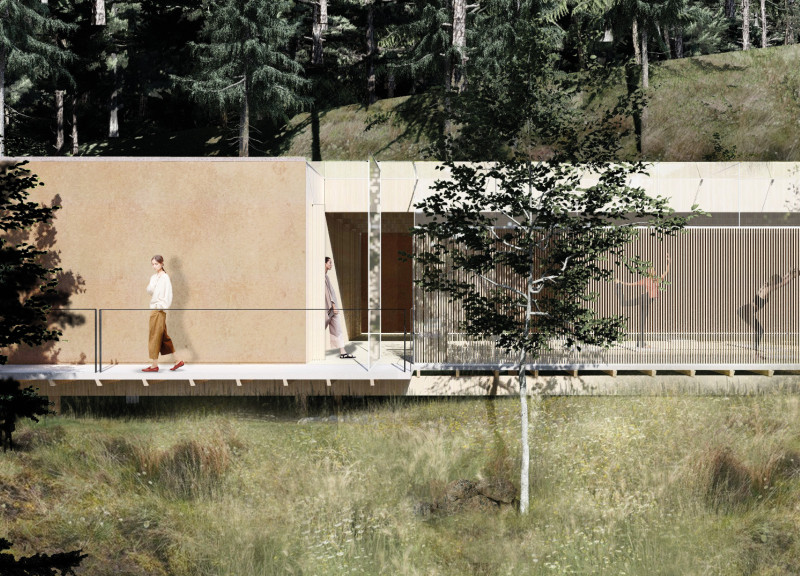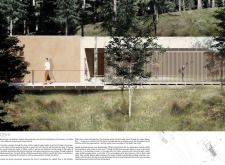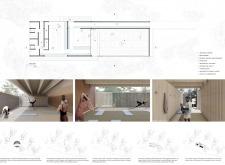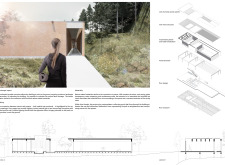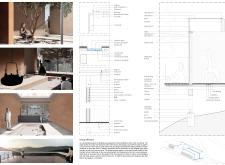5 key facts about this project
The design is located in a quiet valley in central Portugal, where it enhances the practice of yoga and meditation. Its layout creates an environment that encourages people to reconnect with themselves. The overall concept merges nature and built form, guiding visitors through spaces that shift from hidden, contemplative areas to bright, open patios.
Spatial Arrangement and Flow
The space is arranged to lead visitors on a journey. It starts with a narrow, dark corridor that symbolizes introspection before opening up into a sunny patio that invites moments of reflection and tranquility. This flow mirrors the journey people take in yoga, moving from deep personal reflection to a sense of connection with the wider world.
Façade Openings and Light Integration
The design features carefully placed openings in its façade, allowing visitors to engage with the landscape outside. Each room offers unique views that enhance the connection with nature. In the yoga room, slatted panels let in filtered light while focusing attention inward. Natural light also enters through zenith openings and partial glass ceilings, creating a welcoming atmosphere that draws attention to the outdoor environment.
Material Choices and Ecological Considerations
Materials play an important role in the structure. Timber is used for main supports, cork for flooring, and glass to provide clear sightlines. These choices help the building blend into its environment, ensuring minimal impact on the landscape. The timber adds warmth and connects the space to the natural surroundings, while cork contributes to comfort beneathfoot.
The central patio becomes a key area for movement and interaction. It encourages gatherings and shared moments, while its open design fosters a feeling of togetherness. Visitors can experience light and shadow shifting throughout the day, enhancing a calm and reflective setting. The thoughtful arrangement of both structure and space allows for a deeper understanding of the relationship between people, nature, and inner peace.


